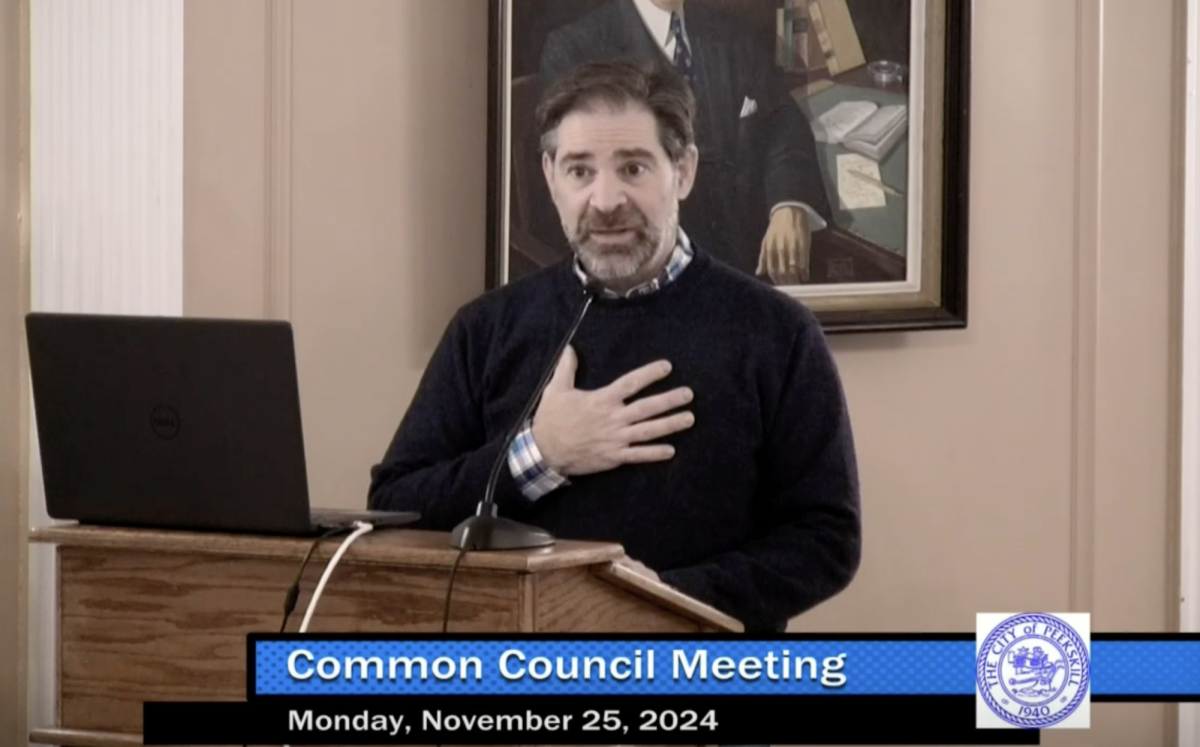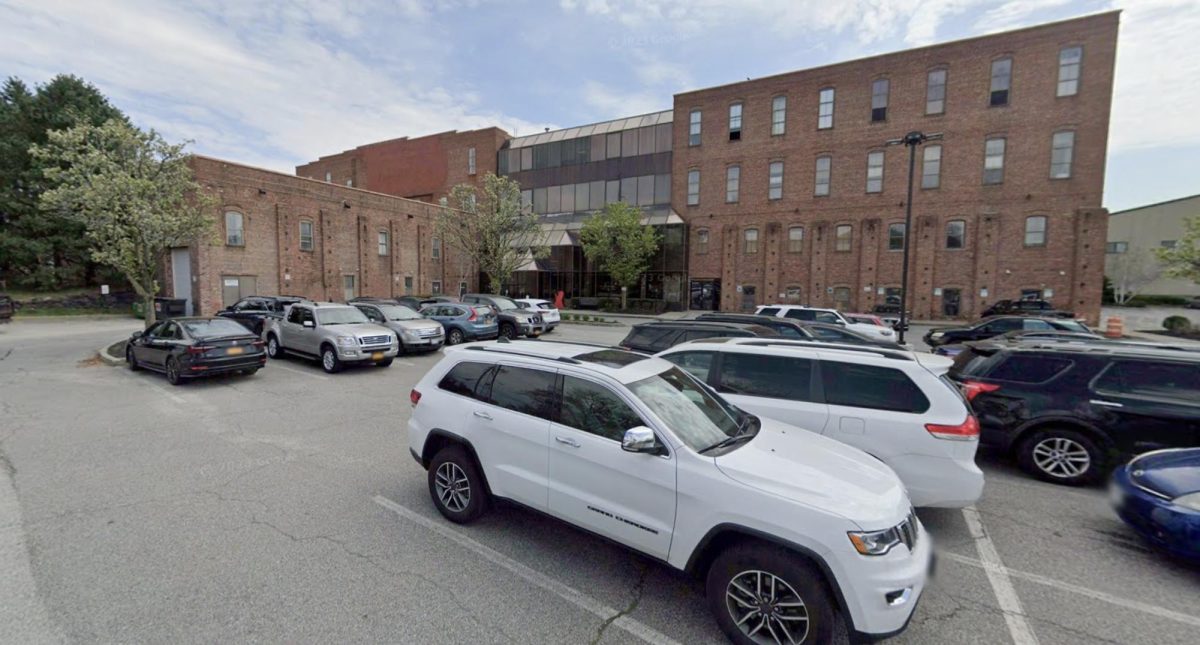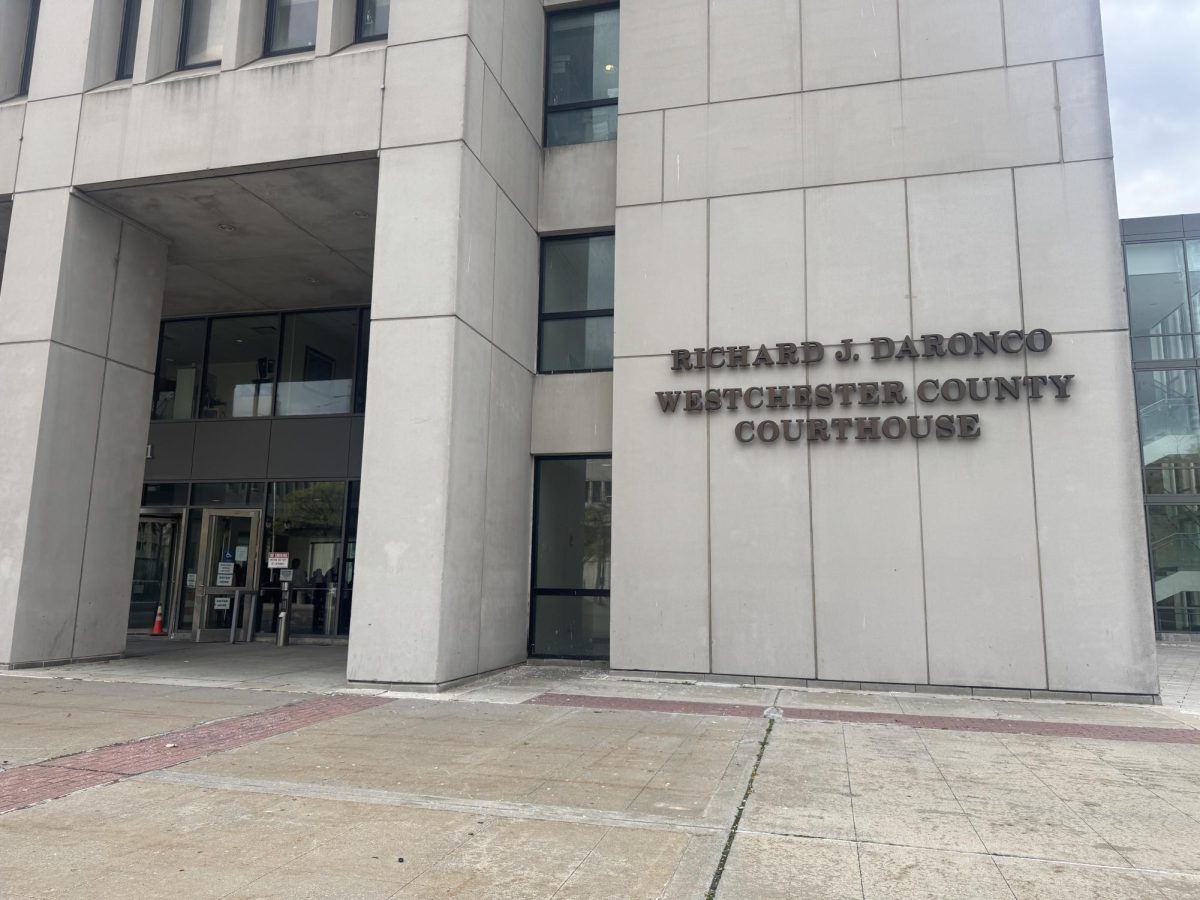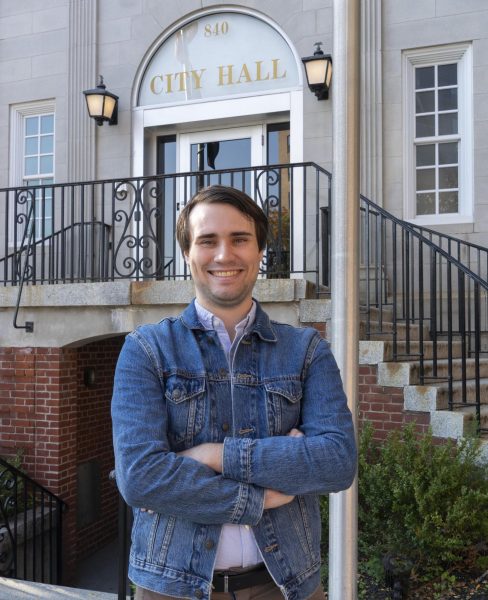One member of a committee that reviewed wayfinding signage proposals is not happy about the design that is going forward this winter.
That is partially because the design selected by the city was presented to the council before the committee could give feedback on the full proposal, he said.
Sepp Spenlinhauer,the husband of Councilman Brian Fassett, voiced his disapproval of the process at Monday’s Common Council meeting, calling it not appropriate.
This came following last week’s meeting when City Planner Peter Erwin provided an update on the Downtown Revitalization Initiative funded project that will bring 28 vehicular and 31 pedestrian signs to the downtown area.
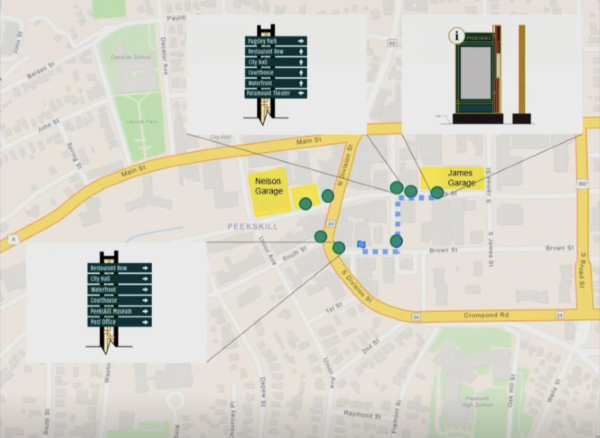
However, according to Spenlinhauer, the design chosen was one that advisory committee members at a meeting several months ago thought was the least appropriate.
“You asked us to give us your time,” Spenlinhauer told the Herald on Wednesday. “We had at least three meetings giving you our time and then you just go to the council and say ‘We’re doing this one’, which just ironically happened to be the one that the committee liked the least.”
While council members last week were presented with three material samples to get a sense of the colors, Spenlinhauer critiqued the fact that a full scale mockup, to get a sense of scale, was not planned. He said he understood that a full metal on scale mockup would be expensive, but said they could have printed a foam core mockup at $500 to $1,000 at max.
“If anything you could print it out on a plotter that prints on big sheets of paper and stick it up on cardboard,” he said on Monday. “We’re not talking about rocket science, we’re talking about giving something that people can visually digest fullscale in our city.”
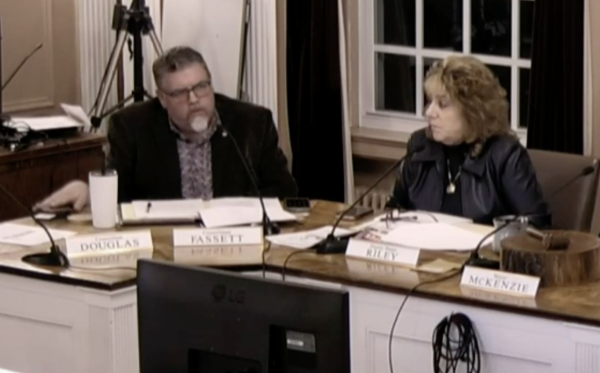
Spenlinhauer, a designer of over 30 years, told the Herald on Wednesday that a full scale mockup would have given a proper frame of reference. He added that mockups often make him and others change their opinions about a top choice.
“Being able to see a little tiny swatch on your table that’s two inches square is very different than walking down the street and seeing a sign that is four feet tall and two feet wide,” he said. “These colors don’t feel the same because your eye is comparing it in a different environment.”
Spenlinhauer said the proposal chosen felt the most university-like, restrained, and less creative than the other options the committee evaluated. Those members met at the discretion of the Planning Department and were tasked with reviewing and being involved in the wayfinding part of the DRI grant.
During Monday’s meeting Spenlinhauer also said the presentation did not have the right print out colors or an easy to digest map of how to lead pedestrians from parking facilities to points of interests.
“The information and design drawings that I reviewed – and I have a degree in understanding this kind of stuff – I couldn’t follow it,” he said. He noted that if the signage is unclear, drivers and pedestrians won’t be able to navigate around the city easily– “This is completely not appropriate.”
City Planner Erwin did not respond to the Herald’s request for comment.
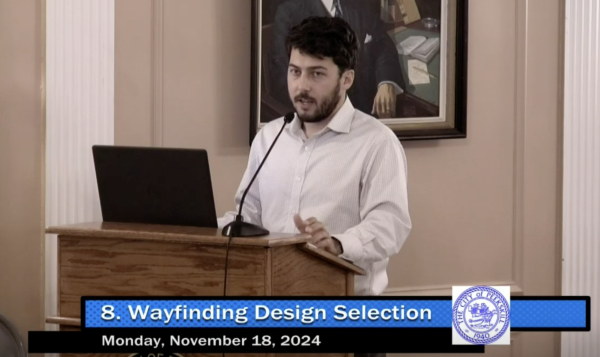
Spenlinhauer urged the council to figure out a way to improve the design.
“I know that it’s already been approved,” he said. “But if there’s anything the council can do to kind of figure out how to make this actually appropriate. It is a 10 to 20 year impact on the visual landscape of this city.”
City appoints new City Court Judge
The Common Council unanimously voted to appoint Sophia L. Trott as a full time judge to Peekskill City Court for a term of 10 years.
Trott, a Peekskill resident of about five years and the founder of the Law Office of Sophia L. Trott, P.C., located in Mount Vernon, told the Herald that she is excited to begin her work as a city court judge.
“I bring a wealth of experience having practiced law for 33 years,” Trott said. “And I think I can bring help, especially with the young people. That’s my desire: to help.”

Trott succeeds Judge Reginald J. Johnson, who resigned in September. The Herald previously reported this week that her practice areas include residential and commercial real estate closings, landlord/tenant proceedings, civil litigation cases that include matrimonial and family court matters, custody and child support cases, and wills. In addition, her practice also represents various for-profit and not-for-profit religious corporations.
The story also noted that before launching her practice in 2007, Trott was a managing partner with Bozeman, Trott & Savage LLP, where she supervised associate attorneys and paralegals. As managing partner, Trott practiced residential and commercial real estate transactions, matrimonial and family law, landlord/tenant proceedings, and civil litigation.

Trott will be sworn in at City Hall’s Council Chambers on Dec. 9 at 7 p.m.
Council passes three resolutions on local laws
Three local laws went into effect at Monday’s Common Council meeting, including one to allow a law firm to act as a city attorney.
When the White Plains based law firm Keane & Beane discovered outside counsel is not legally allowed to act as counsel to the city, it proposed making amendments to create a Department of Law to house a Corporation Counsel office.
Through the resolution Interim Corporation Counsel Eric Gordon also proposed revising amounts applicable to approval of contracts and settlements of claims.
With it, the city manager may authorize contracts below $20,000 without approval from the Department of Law. The limit was previously $5,000. Claims under $10,000 may be settled by the city manager without council approval. The previous limit was also $5,000.
Council members voted 6 to 1 to enact the law. Councilman Ramon Fernandez, who previously proposed keeping the limit of settlements at $5,000 and opposed a public hearing on the matter, was the only one to say no.
The other two local laws passed unanimously, including one concerning reimbursements of professional review fees and escrow accounts, and another one on cannabis regulation.
According to Gordon, the law on professional review fees establishes new provisions that allow for the creation of escrow accounts for those applying for different types of permits or land use type applications to ensure that professional consulting fees are paid.
The cannabis law restricts the use and sale of cannabis within 500 feet of a public youth facility, while also defining what a public youth facility is. The local law was already referred to the Planning Commission which recommended adopting it as written, said Director of Planning Carol Samol.
There were public hearings held for all three local laws at Monday’s council meeting. No one spoke at any hearing.
Council passes 17 resolutions
The Common Council unanimously passed 17 resolutions at Monday’s Common Council meeting.
One of these resolutions authorizes the city manager to enter into an agreement with Empire State Development for an incentive proposal for $50,000 and an agreement with the Dormitory Authority of the State of New York for $125,000. The City of Peekskill will provide a match of $19,444 project from Parks Funds which will be used for the planning and design of capital improvement to the building on Main Street known as the former Hook & Ladder Firehouse. The building currently houses the city’s Youth Bureau and the Hook & Ladder volunteers.
Two other resolutions passed had to do with solar facilities. One would authorize the city manager to execute a lease agreement with Working Power ECP LLC to install community solar facilities on city owned property. The other would allow the city manager to enter into an agreement with Arcadis Engineering Company to review possible issues relating to the installation of solar facilities on the Camp Field reservoir.
The council also voted to pass a resolution authorizing the acceptance of a donation of ten planted trees from Manzer Landscaping Design and Development, Inc. They also voted to extend two contracts they have with Morano Brothers Corp. for snow removal at privately maintained sidewalks where property owners fail to comply with snow removal.




